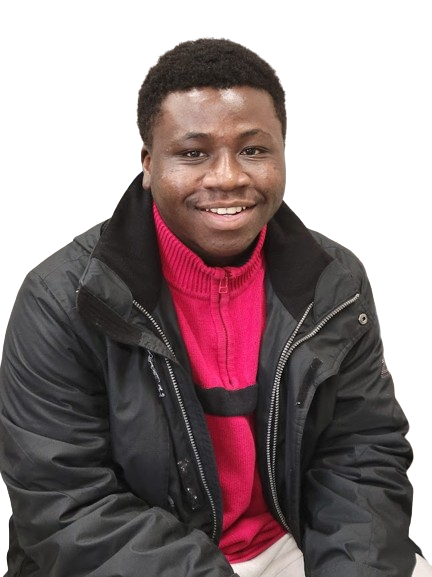Drafted with the help of OpenAI. (2025). ChatGPT (May 30 version) [Large language model]. https://chat.openai.com/
For individuals aspiring to pursue a career in the healthcare sector, particularly in the field of medicine, the practice of shadowing offers a unique and invaluable experiential learning opportunity. It enables them to immerse themselves in the daily routines of healthcare professionals and gain first-hand insights into the potential trajectory of their future careers. Whether situated within a bustling hospital, a serene clinic, or a specialized practice, shadowing affords participants a glimpse into the practical realities of patient care, decision-making processes, and the dynamic nature of the medical profession.
Shadowing, as an observational experience, entails students shadowing a healthcare professional, such as a physician, nurse, or surgeon, in order to observe their daily responsibilities. Throughout this period, students have the opportunity to witness patient interactions, observe medical procedures, and gain insight into the collaborative decision-making processes of healthcare teams. It is important to note that shadowing is distinct from an internship, as its primary focus is on observational learning rather than direct patient care.
The significance of shadowing extends beyond mere resume-building for those pursuing careers in healthcare. It serves as a means to acquire a more profound comprehension of the profession they are endeavoring to enter. Several reasons underscore the importance of shadowing, including its provision of real-world insights into clinical practice that surpass the limitations of traditional didactic instruction. Furthermore, it facilitates the confirmation of career inclinations and allows individuals to explore diverse healthcare specialties. Additionally, shadowing contributes to the cultivation of professionalism and the refinement of communication skills, both of which are indispensable attributes in the healthcare domain.
Shadowing offers benefits beyond merely enhancing a medical school application. It facilitates the development of effective communication skills, provides insights into the operational dynamics of healthcare systems, and presents networking opportunities with seasoned professionals. These connections may lead to mentorship opportunities and the acquisition of letters of recommendation for medical school applications.
Expectations During Shadowing
During a shadowing experience, students can anticipate a predominantly observational role. Depending on the healthcare setting, this may involve observing patient consultations, surgeries or medical procedures, and healthcare team discussions. While students will not actively participate in patient care, they will have a valuable opportunity to observe the medical process. It is imperative for students to maintain professionalism, respect, and attentiveness during their shadowing experience. Thoughtful questioning, when appropriate, can deepen understanding; however, students should be mindful of patient confidentiality and the physician’s time.
Optimizing the Shadowing Experience
To maximize the benefits of shadowing, preparation and reflection are essential. Here are some recommendations for students embarking on their shadowing journey:
Prepare Questions: Before the shadowing experience, students should research the physician’s specialty and formulate questions related to the daily routine, challenges of the field, or advice for medical school. Prepared questions demonstrate initiative and interest.
Be Observant: During shadowing, students should keenly observe both the medical aspects of care and the soft skills involved in patient interactions. Understanding how doctors manage patient emotions, stress, and complex family dynamics is equally important as understanding the medical aspects.
Reflect Afterwards: Following each shadowing experience, it is beneficial for students to take time to reflect on their learning. What aspects stood out to them? How did they perceive the doctor-patient interactions? What insights did they gain about the realities of working in healthcare? Reflection on these experiences will facilitate deeper insights and better preparation for future careers.
Personal Shadowing Experience
Shadowing has been one of the most enlightening and formative experiences in my journey towards a medical career. The opportunity to shadow hospice physicians and resident medical students at Thedacare and Mosaic Family Health allowed me to witness the intricacies of patient care and the significance of teamwork in healthcare. Each day presented new challenges and learning opportunities—from observing how a physician navigates high-pressure situations to witnessing profound moments of connection between doctor and patient. These experiences solidified my passion for medicine and provided a clear understanding of the path ahead.
Shadowing transcends being a mere requirement for medical school; it is a transformative experience that enables future healthcare professionals to gain critical insights into the realm they aspire to enter. It offers a chance to observe, learn, and grow, providing students with a profound understanding of the realities of medicine and preparing them for the journey ahead. Whether one is commencing their pre-med journey or is deeply engrossed in their studies, shadowing offers invaluable lessons, guidance, and inspiration for the road ahead.

Dennis Boakye ’26 is a junior with a major in Neuroscience and a minor in Mathematics. He is also a co-president of the Neurolawrence Club and the Synthetic Biology Club and the treasurer for the American Medical Student Association (AMSA, Lawrence Chapter) and the Black Student Union (BSU). Dennis is the current career peer educator for the Health and Medicinal Professions (HMP) and the Physical and Natural Sciences (PHN) career communities at Lawrence University. Connect with Dennis on LinkedIn.
